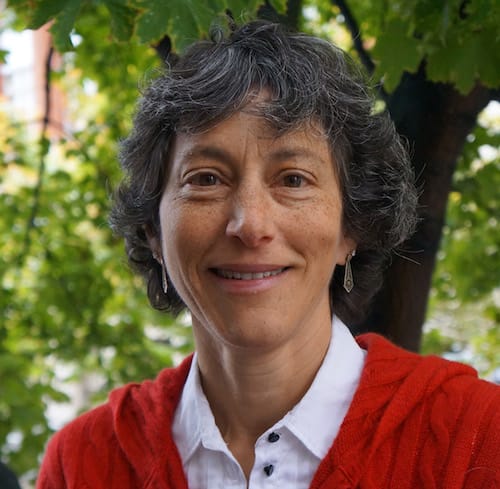I-1631: Hirsh, Guenther set record straight on misleading claims by McKenna
Ads claiming I-1631 exempts Washington’s biggest polluter fail to note the facility is already slated for closure
By Nancy Hirsh, Executive Director NW Energy Coalition & Bob Guenther, Centralia-based labor activist.
This year, voters in Washington have been subject to the biggest onslaught of TV ads and mailers in our state’s history, thanks in large part to a handful of out-of-state oil companies who dumped a record amount of money to defeat I-1631, the carbon fee initiative. Why are they spending so much? Because they know that I-1631 will deliver cleaner consumer choices, cutting into their billions of dollars of profits. But they knew they couldn’t win on the merits of this fight, so they’ve resorted to confusing voters with misleading ads.
The most galling inaccuracy may be the assertion that the measure “exempts the state’s largest polluters,” citing the Centralia Coal Plant.

“What the oil industry’s ads fail to mention is that the coal plant is already on a set retirement schedule that begins in 2020, right when I-1631 would go into effect if passed. The plant as a whole will be retired by 2025 . . . “
What the oil industry’s ads fail to mention is that the coal plant is already on a set retirement schedule that begins in 2020, right when I-1631 would go into effect if passed. The plant as a whole will be retired by 2025 thanks to a settlement agreement that serves as a model nationwide for how to transition away from fossil fuels without leaving the community behind.
As a part of the settlement, the plant’s owner, TransAlta, committed $55 million to the community. This money is being spent right now on projects like solar panels on Tenino High School, weatherizing student housing at Centralia College, and new facilities for small businesses at the Port of Chehalis. Plant workers are also in line to receive funding for education, training and other transition assistance as the plant closes. TransAlta is living up to their commitment to the legislature and is currently working on a large solar installation at the old mine site.
Applying 1631’s carbon fee to the Centralia coal plant would have put this orderly and fair transition in jeopardy and violated the spirit of the agreement with the plant’s workers.
What is clearer is the effect that I-1631 would have on the fossil fuel infrastructure in our grid that isn’t scheduled to retire. I-1631 would make Washington State’s utilities start accounting for the climate and public health costs associated with out-of-state coal plants like the massive Colstrip facility in Eastern Montana.
Utilities have told state regulators that even a modest carbon price would challenge the economics of aging, increasingly expensive coal plants like Colstrip. Colstrip is the largest single source of climate pollution in the American West — the equivalent of 3 million cars on the road — and Washington voters have a chance to push its retirement while promoting clean energy to replace it.
Without question, I-1631 would speed the transition away from coal and fundamentally change the conversation around what will replace it. Wind, solar, pump storage and battery storage technology continues to drop in price with each passing month and is cost-competitive with new gas plants. I-1631 could tip the scales when utilities are looking for new resources, prodding them to build clean energy instead of a new fossil fuel backbone to Washington state’s energy grid.
I-1631 is an opportunity to accelerate the transition to a clean energy grid while helping create 40,000 local jobs in the process. Don’t believe the half-truths coming from out-of-state oil giants — Washington State residents know what’s best for our state. We want the clean energy that I-1631 will develop, and we won’t let out of state oil companies prevent us from getting it.